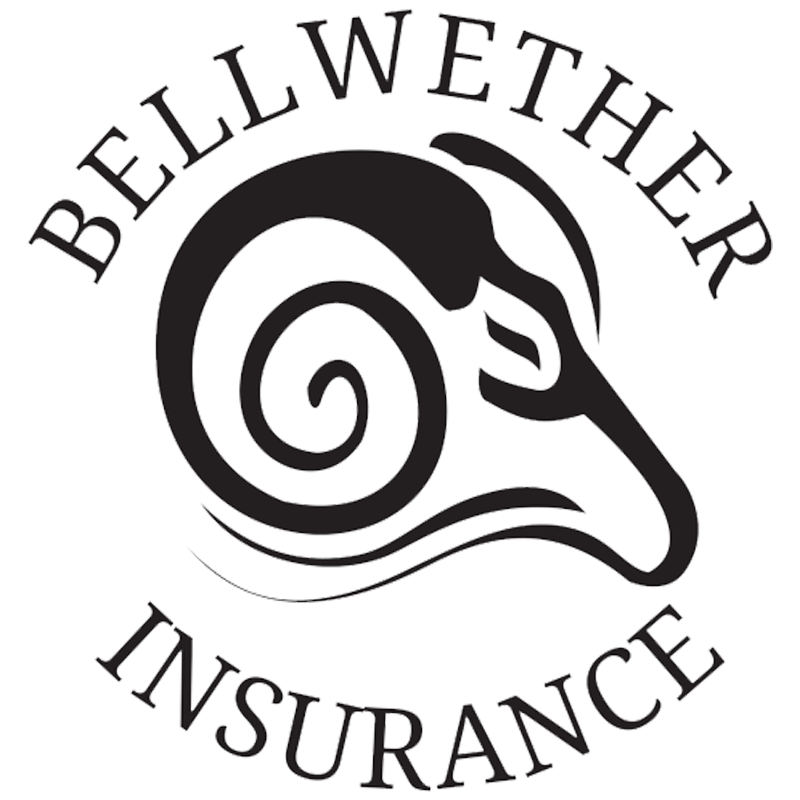Ohio Retail Store Insurance

Index
Understanding the Importance of Retail Store Insurance in Ohio
Types of Insurance Coverage for Ohio Retail Stores
Legal Requirements for Retail Store Insurance in Ohio
Factors Affecting the Cost of Retail Store Insurance in Ohio
How to Choose the Right Insurance Policy for Your Ohio Retail Store
Common Challenges and How Insurance Helps Retail Stores in Ohio
Steps to Take After an Incident or Claim
Conclusion: Protecting Your Ohio Retail Store with the Right Insurance
Contact Us
Phone
216-600-2828
Location
100 N. Center Street PO Box 627 LaGrange, OH 44050
Owning and operating a retail store in Ohio comes with a unique set of challenges and risks. From protecting your property and inventory to managing liability concerns, having the right insurance coverage is essential to safeguard your business’s future. This comprehensive guide covers everything you need to know about Ohio retail store insurance, including the types of coverage available, legal requirements, cost factors, and tips for choosing the best policy for your business.
Understanding the Importance of Retail Store Insurance in Ohio
Retail stores face a variety of risks daily, including theft, property damage, customer injuries, and even business interruptions. Without proper insurance, these risks can lead to significant financial losses or even force a business to close its doors.
Ohio’s retail sector is a vital part of the state’s economy, with thousands of small and medium-sized businesses serving local communities. According to the Ohio Department of Development, retail trade accounts for roughly 15% of the state’s employment, highlighting the importance of protecting these businesses through adequate insurance coverage.
Insurance not only provides financial protection but also helps build trust with customers, vendors, and lenders. It ensures that your retail store can recover quickly from unexpected events and continue operating smoothly.
Moreover, the landscape of retail is constantly evolving, with the rise of e-commerce and changing consumer behaviors. This dynamic environment introduces new challenges that can impact traditional brick-and-mortar stores. For instance, a sudden surge in online sales can lead to increased foot traffic, which may heighten the risk of accidents or injuries on-site. Retail store insurance can help mitigate these risks by covering potential liabilities that arise from such scenarios, ensuring that businesses can adapt and thrive in a competitive marketplace.
Additionally, Ohio retail businesses often face unique challenges due to seasonal fluctuations and economic shifts. For example, during the holiday season, stores may experience a spike in inventory and staffing needs, which can strain resources and increase the likelihood of operational disruptions. Comprehensive insurance coverage can provide peace of mind during these peak periods, allowing retailers to focus on serving their customers without the constant worry of unforeseen incidents that could jeopardize their operations.

Types of Insurance Coverage for Ohio Retail Stores
General Liability Insurance
General liability insurance is a foundational coverage for any retail business. It protects against claims related to bodily injury, property damage, and personal injury that occur on your premises or as a result of your business operations.
For example, if a customer slips and falls inside your store and sues for medical expenses, general liability insurance can cover legal fees and settlements. This coverage is crucial because slip-and-fall accidents are among the most common claims faced by retail stores. Additionally, it can extend to cover incidents that occur off-site, such as if a customer is injured during a promotional event sponsored by your store. Thus, having a robust general liability policy not only safeguards your finances but also enhances your business's credibility and trustworthiness in the eyes of customers.
Commercial Property Insurance
Commercial property insurance covers damage to your retail store’s physical location, including the building (if owned), equipment, inventory, and signage. Common covered perils include fire, theft, vandalism, and natural disasters such as storms or hail.
Given Ohio’s susceptibility to severe weather events like tornadoes and heavy snowstorms, this coverage is particularly important. It ensures that your business can repair or replace damaged property without bearing the full financial burden. Furthermore, many policies also offer business personal property coverage, which protects items like furniture, fixtures, and inventory that are essential for daily operations. This comprehensive protection allows retailers to focus on recovery and rebuilding rather than worrying about the financial implications of property damage.
Business Interruption Insurance
Also known as business income insurance, this coverage helps replace lost income if your retail store must temporarily close due to a covered event, such as a fire or flood. It can cover ongoing expenses like rent, payroll, and utilities during the closure period.
Business interruption insurance is critical for Ohio retailers because even a short closure can lead to significant revenue loss and jeopardize long-term viability. In addition to covering lost income, some policies may also include extra expenses coverage, which helps pay for costs incurred to expedite the reopening process, such as renting temporary space or equipment. This added layer of support can be invaluable in helping retailers bounce back quickly and maintain customer loyalty during challenging times.
Workers’ Compensation Insurance
Ohio law requires most employers, including retail stores, to carry workers’ compensation insurance if they have one or more employees. This coverage provides medical benefits and wage replacement to employees injured on the job.
Retail environments can involve risks such as lifting heavy items, operating machinery, or repetitive strain injuries. Workers’ compensation insurance protects both employees and employers by covering medical costs and limiting liability. Additionally, some policies offer employer's liability coverage, which can protect against lawsuits filed by employees claiming negligence. By investing in a comprehensive workers' compensation policy, retailers not only comply with legal requirements but also foster a safer workplace culture, which can lead to higher employee morale and productivity.
Commercial Auto Insurance
If your retail store uses vehicles for deliveries, pickups, or other business purposes, commercial auto insurance is necessary. Personal auto policies typically do not cover vehicles used for business activities.
This insurance covers liability and physical damage related to business vehicle use, protecting your company from costly claims arising from accidents or vehicle damage. Moreover, commercial auto insurance can also provide coverage for non-owned vehicles that employees may use for business purposes, extending protection beyond just company-owned vehicles. This flexibility is particularly beneficial for retailers who rely on a fleet of vehicles or frequently engage third-party services for deliveries, ensuring that all aspects of transportation are adequately covered.
Product Liability Insurance
Retailers that sell products can face liability claims if a product causes injury or damage. Product liability insurance protects against lawsuits stemming from defective or harmful products sold by your store.
This coverage is especially important for stores selling electronics, children’s toys, food items, or health and beauty products, where product safety is a significant concern. In addition to protecting against claims from consumers, product liability insurance can also cover legal fees associated with defending against such claims. Retailers should also consider obtaining product recall insurance, which can assist with the costs associated with recalling defective products from the market, including public relations efforts and logistics, thereby safeguarding both the business and its customers.
Cyber Liability Insurance
With the rise of digital payment systems and online sales, cyber liability insurance has become increasingly relevant for retail stores. This coverage helps protect your business from data breaches, cyberattacks, and other technology-related risks.
Ohio retailers that handle customer credit card information or maintain an online presence should consider cyber liability insurance to mitigate the financial and reputational damage of cyber incidents. Additionally, many policies offer coverage for regulatory fines and penalties that may arise from data breaches, as well as costs associated with notifying affected customers and providing credit monitoring services. As cyber threats continue to evolve, having this insurance can provide peace of mind and a strategic advantage in maintaining customer trust in an increasingly digital marketplace.
Legal Requirements for Retail Store Insurance in Ohio
While many types of retail insurance are optional, some coverages are mandated by Ohio law or necessary for compliance with business contracts and leases.
Workers’ Compensation Requirements
Ohio requires all employers with one or more employees to carry workers’ compensation insurance. Failure to comply can result in penalties, fines, and exposure to lawsuits from injured employees.
Retail store owners who operate as sole proprietors without employees are generally exempt, but it’s important to verify your specific situation with the Ohio Bureau of Workers’ Compensation. Additionally, even if you are exempt, it may still be prudent to consider voluntary coverage to protect yourself against potential claims that could arise from workplace injuries or accidents. This proactive approach not only safeguards your financial interests but also fosters a safer work environment, which can enhance employee morale and productivity.
Commercial Auto Insurance Mandates
If your retail store owns or operates vehicles, Ohio law requires minimum liability coverage for bodily injury and property damage. Carrying adequate commercial auto insurance is essential to comply with these regulations and protect your business assets.
Moreover, it’s worth noting that commercial auto insurance can extend beyond just basic liability coverage. Many policies also offer protection against theft, vandalism, and damage to your vehicles, which can be particularly beneficial for retail operations that rely on transportation for deliveries or service calls. Understanding the full scope of coverage options available can help you tailor your policy to meet the unique needs of your business, ensuring that you are fully protected in various scenarios.
Lease and Contractual Insurance Requirements
Many landlords and suppliers require retail tenants and partners to carry certain types of insurance, such as general liability and property insurance, as part of lease agreements or contracts. Meeting these requirements is often necessary to secure favorable terms and maintain good business relationships.
In addition to general liability and property insurance, some contracts may stipulate the need for additional coverages, such as business interruption insurance or product liability insurance, depending on the nature of the retail operation. Understanding these nuances is crucial, as failing to meet these contractual obligations can lead to disputes or even eviction. It’s advisable for retail store owners to carefully review all lease agreements and consult with an insurance professional to ensure they have the appropriate coverage in place to meet both legal and contractual obligations, thereby minimizing risks and fostering a successful business environment.
Factors Affecting the Cost of Retail Store Insurance in Ohio
Understanding the variables that influence insurance premiums can help Ohio retail store owners budget effectively and find the best coverage for their needs.
Store Location and Size
Insurance costs can vary significantly depending on your store’s location within Ohio. Urban areas like Columbus, Cleveland, and Cincinnati may have higher premiums due to increased risks of theft or vandalism. The size of your retail space and the value of your inventory also impact premiums.
Type of Products Sold
Stores selling high-value or high-risk products, such as electronics or food, may face higher insurance costs due to greater liability exposure. Conversely, stores selling lower-risk items may benefit from lower premiums.
Claims History
Insurance providers consider your business’s claims history when setting rates. A history of frequent or severe claims can lead to higher premiums, while a clean record may qualify you for discounts.
Coverage Limits and Deductibles
The amount of coverage you choose and the deductible levels affect your premium. Higher coverage limits and lower deductibles typically result in higher premiums but provide more comprehensive protection.
Security Measures
Implementing security systems such as alarms, surveillance cameras, and fire suppression systems can reduce your risk profile and lead to lower insurance costs.

How to Choose the Right Insurance Policy for Your Ohio Retail Store
Selecting the right insurance policy requires careful consideration of your business’s unique risks, budget, and growth plans.
Assess Your Risks Thoroughly
Start by evaluating the specific risks your retail store faces, including property hazards, liability exposures, employee safety, and cyber threats. This assessment will guide you in selecting appropriate coverage types and limits.
Compare Multiple Insurance Providers
Shopping around and obtaining quotes from several insurance companies can help you find competitive rates and better coverage options. Look for insurers with experience serving Ohio retail businesses and positive customer reviews.
Understand Policy Terms and Exclusions
Carefully review policy details, including coverage limits, exclusions, and claim procedures. Understanding what is and isn’t covered helps avoid surprises during a claim.
Consider Bundling Policies
Many insurers offer package policies, such as a Business Owner’s Policy (BOP), which bundles general liability, property, and business interruption insurance at a discounted rate. Bundling can simplify management and reduce costs.
Work with an Experienced Insurance Agent
Consulting with an insurance agent or broker who specializes in retail business insurance in Ohio can provide valuable insights and personalized recommendations tailored to your store’s needs.
Common Challenges and How Insurance Helps Retail Stores in Ohio
TRetail businesses in Ohio face several common challenges that insurance can help mitigate.
Theft and Shoplifting
Retail theft is a persistent problem, with the National Retail Federation estimating that retail shrinkage cost U.S. retailers over $100 billion in 2023. Insurance coverage for theft and vandalism helps offset losses and supports recovery efforts.
Natural Disasters and Weather Events
Ohio experiences a range of weather-related risks, including tornadoes, floods, and winter storms. Property and business interruption insurance protect retail stores from the financial impact of these events.
Customer Injuries and Liability Claims
Slip-and-fall accidents and other customer injuries can result in costly lawsuits. General liability insurance provides essential protection against these claims.
Employee Injuries
Retail work can involve physical risks, and workers’ compensation insurance ensures employees receive medical care while protecting employers from legal liabilities.
Cybersecurity Threats
With increasing reliance on digital systems, cyberattacks pose a growing threat. Cyber liability insurance helps cover costs related to data breaches and cyber extortion.
Steps to Take After an Incident or Claim
Knowing how to respond after an incident can streamline the claims process and minimize business disruption.
Document the Incident Thoroughly
Gather evidence such as photos, witness statements, and police reports. Detailed documentation supports your claim and helps insurers assess the situation accurately.
Notify Your Insurance Provider Promptly
Contact your insurer as soon as possible to report the claim. Early notification can speed up the investigation and settlement process.
Follow Claim Procedures Carefully
Adhere to your insurer’s instructions regarding documentation, inspections, and communication. Prompt cooperation facilitates a smoother claims experience.
Review the Settlement Offer
Evaluate any settlement offers carefully and seek clarification or negotiation if necessary. Ensuring the settlement adequately covers your losses is critical.
Conclusion: Protecting Your Ohio Retail Store with the Right Insurance
Insurance is a vital tool for managing the risks inherent in running a retail store in Ohio. By understanding the types of coverage available, legal requirements, and factors influencing costs, retail business owners can make informed decisions to protect their investments.
Choosing the right insurance policy not only safeguards your store’s assets but also provides peace of mind, allowing you to focus on growing your business and serving your customers. Partnering with knowledgeable insurance professionals and regularly reviewing your coverage ensures your retail store remains resilient in the face of challenges.


